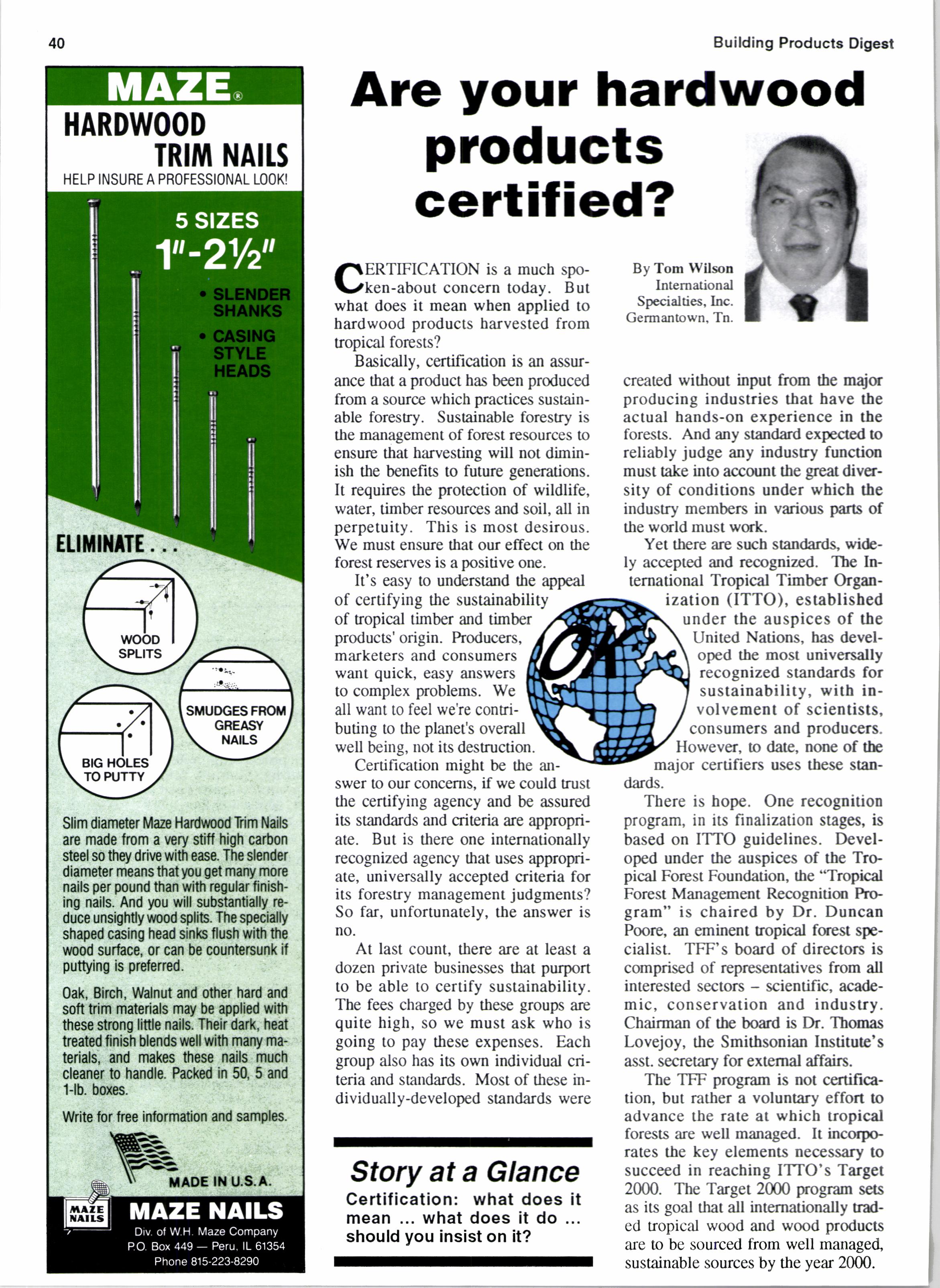
2 minute read
Are your hardwood products certified?
f\ERTIFICATION is a much spoVken-about concern today. But what does it mean when applied to hardwood products harvested from tropical forests?
Basically, certification is an assurance that a product has been produced from a source which practices sustainable forestry. Sustainable forestry is the management of forest resources to ensue tlat harvesting will not diminish the benefits to future generations. It requires the protection of wildlife, water, timber resources and soil, all in perpetuity. This is most desirous. We must ensure that our effect on the forest reserves is a positive one.
It's easy to understand the appeal of certifying the sustainability of ropical timber and timber products' origin. Producers, marketers and consumers want quick, easy answers to complex problems. We all want to feel we're contributing to the planet's overall well being, not its destruction.
Certifrcation might be the answer !o our concerns, if we could trust the certifying agency and be assured its sundards and oiteria are appropriate. But is there one internationally recognized agency that uses appropriate, universally accepted criteria for its forestry management judgmens? So far, unfortunately, lhe answer is no.
At last count, there are at least a dozen private businesses that purport to be able to certify sustainability. The fees charged by these groups are quite high, so we must ask who is going to pay these expenses. Each group also has is own individual criteria and standards. Most of these individually-developed standards were
By Tom Wllson Intemational Spec'ialties, Inc. Germantown, Tn.
created without input from the m4ia producing industries that have Oe actual hands-on experience in Oe forests. And any standard expected to reliably judge any industry function must take into account the greardivasity of conditions under which the industry members in various parts of Oe wuldmustwak.
Yet there are such standards, wi&ly accepted and reoognized. The International Tropical Timber Organization (ITTO), established under the auspices of the United Nations, bas developed the most universally recognized standards for sustainability, with involvement of scientists, consumers and producers. However, o date, none of tb major certifiers us€s these standards.
There is hope. One recognition program, in is finalization stages, is based on ITTO guidelines. Developed under tbe auspices of the Tropical Forest Foundation, lhe "Tropical Forest Management Recognition Program" is chaired by Dr. Duncan Poore, an eminent ropical fsesr specialist. TFF's board of directors is comprised of representarives from dl interested sectors - scientific, academic, conservation and industry. Chairman of Oe board is Dr. Thomas Lovejoy, the Smithsonian Institute's asst. secretary for extemal affain.
The TFF program is not certification, but rather a voluntary effort to advance the rate at whicb tropical forests are well managed. It incorporates Oe key elements necessary !o succeed in reaching ITTO's Target 2000. The Target 2000 progran sas as is goal that dl internationally traded tropical wood and wood products are to be sourced from well managed, sustainable sources by the year 2000.










